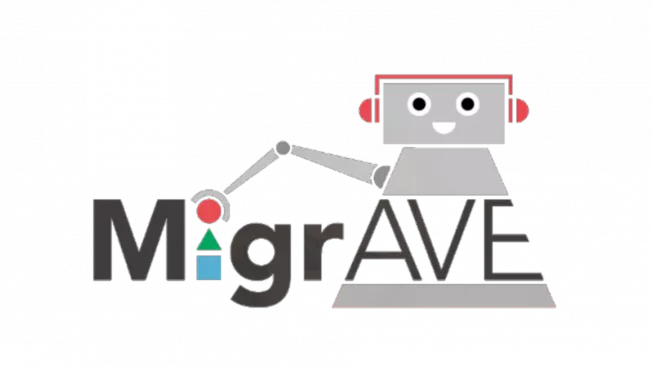Fachbereich Informatik

Dr. Alex Mitrevski
Forschungs- und Strategiemanager, Lehrkraft für besondere Aufgaben/Institut für KI und Autonome Systeme (A2S)
Gliederung
Fachbereich Informatik, Institut für KI und Autonome Systeme (A2S)
Standort
Sankt Augustin
Raum
C203
Adresse
Grantham-Allee 20
53757, Sankt Augustin
Telefon
+492241 865206Profil
Forschungsgebiete
- Knowledge representation and reasoning (knowledge retrieval, forgetting mechanisms, template- and case-based reasoning)
- Lifelong robot learning
- Simulation-based robot learning and reasoning
- Robot fault detection and diagnosis
- Cognitive robotics
Lehre
Lehrbeauftragter
- Robot Learning (WS23)
- Cognitive Robotics (SS23)
- Autonomous Mobile Robots (WS23)
- Software Engineering for Robotics (WS23)
- Research and Development Colloquium (WS19, zusammen mit Argentina Ortega in SS18)
- Fault Detection and Diagnosis (SS19)
TA
- Mathematics for Robotics and Control (SS21, WS20, SS20, WS19, WS18, SS18, WS17, zusammen mit Santosh Thoduka in SS17)
- Software Development Project - project coach (WS22, SS22, SS21, WS20, SS20)
- Scientific Experimentation and Evaluation (WS18, SS18, WS17, zusammen mit Santosh Thoduka in SS17)
Betreute Masterarbeiten
- Visuomotor policy learning for predictive manipulation
- Multimodal deep learning-based adaptation of robot behaviour for assistive robotics
- Experience-based path planning framework for real-time learning from demonstration
- Robust environment sound classification and anomaly detection using deep learning
- Towards improvements on RoboCup@Home robots architecture, capabilities and development process
- Lifelong action learning for socially assistive robots
Betreute R&D-Projekte
- Incorporating contextual knowledge into human-robot collaborative task execution
- Learning corrective models for multistep actions by analysing videos
- Integrating anomaly detection with fault diagnosis for long-horizon tasks
- Registering and visualizing point cloud data with existing 3D CityGML Models
- A comparative analysis of fault detection approaches in mobile robots
- Benchmarking object placement algorithms for mobile robotic manipulators
- Tell your robot what to do: Evaluation of natural language models for robot command processing
- Safe and fault-aware child-robot natural language interaction
- Manipulating handles in domestic environments
- Learning grasp evaluation models using synthetic 3D object-grasp representations
- Dynamic motion primitives
- Ontology-based robot fault diagnosis
- Learning human gestures by imitation for robots
- Development and implementation of a self-learning control approach for contact-rich object manipulation
- Automated test generation for robot self-examination
- Explainability analysis for skill execution
- Learning efficient knife handling skills in semi-structured environments on a dual-arm robot
- Personalised behaviour models for child-robot interaction
- Semantic information by acoustic clues: A modern approach to anomaly detection for robotics
Mitgliedschaften
Forschungsprojekte
KEROL zielt darauf ab, (i) eine Umgebung zur Datenerfassung und -annotation zu entwickeln, die es ermöglicht, verschiedene Roboterfähigkeiten auszuführen und Ausführungsfehler zu annotieren, und (ii) eine Simulationsumgebung zu entwickeln, mit der die Ausführung von gelernten Fähigkeiten unter einer Vielzahl von Bedingungen bewertet werden kann.
Projektleitung an der H-BRS
Dr. Alex MitrevskiDas Ziel des Projekts MigrAVE ist die Entwicklung von Technologien, die Kindern mit Autismus-Spektrum-Störungen (ASS) in alltäglichen Situationen unterstützen. ASS führt bei den Betroffenen zu verschiedenen sozialen und verhaltensbezogenen Herausforderungen; Menschen mit Autismus haben zum Beispiel Schwierigkeiten beim Erkennen von Emotionen oder verhalten sich in Alltagssituationen unangemessen, ohne dies wahrzunehmen.
Projektleitung an der H-BRS
Professor im Ruhestand / retired professor Dr. Paul G. PlögerObjectives Develop and implement a disruptive concept for automatically guided vehicles (AGVs) that lowers the still existing barrier in logistics by offering • cost-effective, automated or semi-automated indoor transportation of goods, • while coping with existing legacy in terms of size, shape, and weight of goods and containers, • without imposing disruptive changes in existing logistic solutions, such as rebuilding entire warehouses or switching to new containers or storage technology.
Projektleitung an der H-BRS
Professor im Ruhestand / retired professor Erwin PrasslerPublikationen

